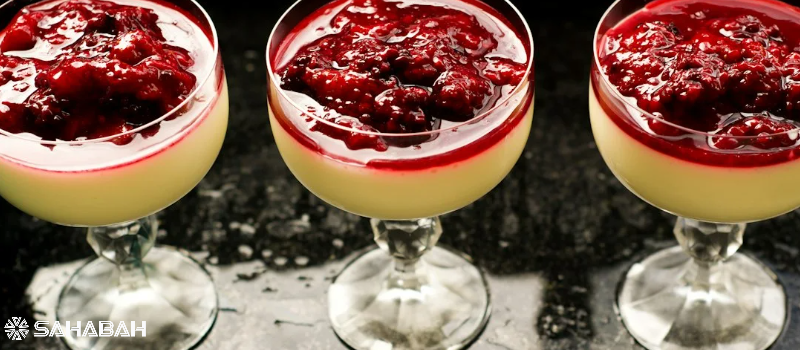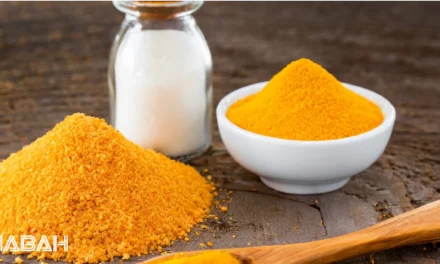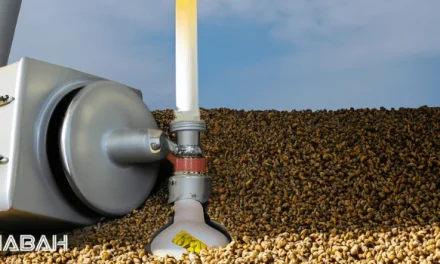Agar, also referred to as agar agar, kanten, Japanese isinglass, China grass and Jaffna moss, is a vegetarian and vegan gelatin substitute that is growing in popularity. It is commonly used as an ingredient in various desserts, jams, jellies, soups, gravies and other dishes requiring thickening or gelling properties.
But a common question arises on whether agar meets Islamic dietary halal standards. This comprehensive guide takes an in-depth look at agar – its composition, production methods, and the scholarly evidence regarding its permissibility certification in Islam.
Defining the Concept of Halal Food
In order for food to be considered halal, it must comply with the dietary regulations put forth in the Holy Quran:
- It must not contain any ingredients forbidden by Islamic law like pork, carrion, alcohol or blood.
- The permitted animals must be slaughtered according to zabiha ritual guidelines for the meat to be consumable.
- Any food additives used must also meet halal standards.
- The processing, preparation and manufacturing procedures must adhere to purity and cleanliness protocols.
Halal certification authorities like The Islamic Food and Nutrition Council of America (IFANCA) assess these parameters before designating food products permissible for Muslims. This applies not only to the food itself but also the production and touchpoints across the supply chain.
Vegetarian substitutes like agar must avoid alcohol in processing, cross-contamination with questionable ingredients and adhere to manufacturing protocols for halal compliance.
The Composition and Source of Agar
Agar consists of a mixture of polysaccharides that serve as natural structural polymers. It contains galactose units, much like traditional gelatin.
This soluble fiber is extracted through boiling certain species of red seaweed and algae in water. These marine vegetation sources of agar typically include:
- Gelidium amansii (agar agar)
- Gracilaria (Ogonori)
- Gelidium (agar weed)
- Pterocladia (Beyonde)
- Ahnfeltia plicata (Boil-proof Agar)
The raw red algae and seaweed materials first undergo cleaning to remove impurities. After harvesting, they are repeatedly boiled in water, causing the agar to dissolve into a colloidal solution. This extracted liquid sets into jelly-like ribbons or strips as it subsequently cools.
Further freeze-thaw and isoelectric purification produces solid flakes, fine powders or agar sheets by removing water and mineral residues. Unlike animal-origin gelatin made from bovine bones and tissues, agar production avoids any animal ingredients, qualifying it as vegetarian and vegan.
The entire traditional process is natural, avoiding chemical modifications that can raise halal concerns. So agar offers similarities to gelatin in gelling properties but hails from more permissible vegetation sources.
Geographic Origins and Manufacturing of Agar
While various seaweed varieties can yield agar, coastal regions of Asia have become dominant centers of production:
-
Japan invested heavily in perfecting agar production from the 1600s after discovering its gelling potential. Japanese producers played a key role in popularizing agar on a global scale.
-
China, Indonesia and Malaysia are presently the world’s top exporters accounting for over 75% total supply. China leads in total agar production volume currently. Abundant local seaweed sources allow cost-efficient harvesting and processing.
-
Korea, Spain, Morocco, Chile and France have also cultivated and produced agar commercially although on smaller scales. Their local red algae species serve as supply sources.
In terms of manufacturing, while traditional sun-drying methods still persist, most major agar factories rely on mechanical dehydration and processing tanks to produce powder and flakes quickly. The extraction, freeze-thaw process, cleansing and evaporation stages typically take place in dedicated facilities that avoid introducing external contaminants.
Compliance with halal protocols during such dedicated manufacturing and prevention of cross-contamination has enabled prominent agar firms to achieve halal certification. This includes trusted brands like Living Jin Agar, Ranso Agar and Agarmex.
Why Agar’s Halal Status Has Faced Questions
Even with agar’s origins from vegetation sources rather than animals, some considerations arise around its permissibility for Muslims observing halal diets:
-
Lack of clarity on seaweed and marine algae itself being halal – There seems to be more consensus on the sanctity of fish/seafood. But a few minority schools of Islamic thought have prohibited consumption of certain sea vegetables, which impacts agar.
-
Production methods could introduce alcohol or cross-contamination – If the manufacturing facilities handle non-halal items, shared equipment could transfer traces. Some processing stages may also add alcohols as solvents during extraction. Proper halal compliance certification is needed to prevent this.
-
Shared terminology creates confusion with actual haram ingredients – Names like agar-agar powder or flakes may sometimes refer to inedible or non-halal products. It becomes vital to check actual source composition rather than relying just on product labelling.
Fatwas and Islamic Rulings on Agar’s Halal Designation
To provide clarity for Muslims on this increasingly common but questionable ingredient, multiple halal certification bodies and Islamic organizations have extensively studied agar and released guidance on its religious permissibility:
Permitted by Malaysian, Indonesian and Singapore Authorities
-
JAKIM (Malaysia) – Malaysia’s Department of Islamic Advancement has officially decreed agar and agar-agar to be unconditionally halal. No further inquiry is needed provided product packaging bears JAKIM’s logo.
-
MUI (Indonesia) – Indonesia’s Council of Ulama has also issued fatwas certifying commercial food-grade agar and agar derivatives to be halal.
-
MUIS (Singapore) – Majlis Ugama Islam Singapura or the Islamic Religious Council of Singapore also recognizes agar products as permissible.
International and Scholarly Opinions
-
Dr. Muhammad Ratib An-Nabulsi (Syria) – Prominent Islamic scholar and opinion leader that declared agar halal for observant Muslims and permissible within the Islamic concept of Tayyib or ‘good food’.
-
Sheikh Kadhi (Kenya) – Kenyan religious leader and Imam Ahmad Sheikh Omar Kadhi ruled agar derived through drying processes of marine red algae to be unconditionally halal.
-
Hanbali and Shafi jurisprudence also fully allow algae-based agar, provided manufacturing protocols avoid alcohol and contamination. Some minority Hanafi and Maliki opinions disagree owing to doubts around seaweed’s sanctity in Islam.
In essence, most mainstream religious edicts and scholarly opinions support designating agar as compliant with halal guidelines, especially plant-derived varieties that steer clear of pork traces and alcohol.
The Significance of Certification in Halal Confirmation
For Muslim consumers looking to purchase and consume agar products, halal certification through accredited organizations can provide definitive confirmation:
Why Halal Compliance Documentation Matters
- Removes guesswork around permissibility and sources
- Confirms no alcohol or contamination was introduced
- Provides manufacturer auditing around production processes
- Allows Muslims to safely sample exotic cuisine offerings
What to Look for When Sourcing Agar
- Official certification marks from recognized halal authorities
- Manufacturers clearly listing halal ingredients
- Product descriptions referencing Islamic-compliant production
- Restaurant dishes flagged as approved Muslim fare
Some major pre-certified halal agar brands include:
- Living Jin Agar (U.S.) – IFANCA certified
- Ranso Agar (Malaysia)
- Agarmex (Mexico)
- Myagar (Kosher/Halal)
With halal-complaint agar products, Muslims can utilize this versatile ingredient without concerns over religious permissibility within recipes.
Using Agar – Dosage Guidance and Recipe Ideas
Once the halal status is verified through proper documentation, agar powder or flakes make an excellent vegetarian-friendly substitute for pork-derived gelatin products:
Typical Agar Usage Rate
- Substitute 1 teaspoon agar flakes/powder for 1 tablespoon of regular gelatin powder.
- For firmer jelly textures, up to 1.5 teaspoons agar per tablespoon gelatin suffices.
- Excessive agar quantities can sometimes yield slightly rubbery textures.
What Dishes Can You Make with Dry Agar Powder?
- Jellies, aspics, panne cotta flans and chia seed puddings
- Yogurt bowls with fruit preserves, coconut milk desserts
- Homemade gummy bears, sweet glazes and fruit fillings
- Smoothies, protein shakes, ice creams, popsicles
- Fruit glazes on meat, meringues, mousses, soufflés
For solid sheets/strips of agar, boil briefly to melt into a liquid sol state for gelling.
Tips for Working with Agar Powder
When substituting agar for gelatin, keep these best practices in mind:
- Agar powders must be thoroughly dissolved into liquids while cooking for full functionality. Bring liquids to a rapid boil when mixing in agar.
- 2-3 minutes of boiling ensures agar melting so it can set properly upon cooling. Insufficient heating time prevents gelling.
- Use neutral pH liquid bases between 4.5 and 7.0 for optimum results. Acidic elements like citrus juices can inhibit setting.
- Consider combining with locust bean gum or xanthan gum to obtain more gelatin-like textures.
- Refrain from using hard water. Soften water or use filtered water alternatives if possible.
Creative Ways to Use Agar
In addition to traditional dessert recipes and sweet jellies, some innovative ways to utilize halal agar powder include:
- Homemade fruit snacks like jellies, gummies and fruit leathers
- Natural glazes for poultry, ham or meat slices
- Chia seed based puddings with layered fruit purees
- Silken tofu dishes with agar for smooth, thick texture
- Anticaking agent and stabilizer in shredded, grated or ground foods
- Substitute in pan-Asian soups needing glutinous texture
- Marinated vegetable slices held together with thin agar jelly layers
- Natural preservative by inhibiting growth of microbes
The vegan properties and neutral taste of agar make it ideal for incorporating into a diverse range of cuisines from Eastern to Western cultures.
Adapting Family Recipes Using Agar
Modifying traditional recipes that previously relied on animal-based gelatin is simple:
- Swap out gelatin powder in a 1:1 ratio. For every 1 TBSP gelatin, use 1 tsp agar powder instead
- For sheets/leaf gelatin, substitute 1 sheet with 1 g of agar powder
- Increase liquids or reduce agar slightly to allow flowing thinner consistencies if desired
- Expect firmer yet still jiggly textures compared to gelatin
- Add agar powder to hot liquids vs. gelatin in cold liquids
So Muslims can easily halalize dessert favorites, jams, mousses and more with this simple gelatin alternative.
Key Takeaways – Why Agar Qualifies as Halal
In closing, the following conclusions support recognizing agar as permissible within Islamic law:
- Sourced from sea vegetation rather than terrestrial crops or animal bones
- Extraction and manufacture avoids alcohol and contamination
- Cleanses of impurities to reach food-grade production quality
- Conforms to Quranic sanctioned categories for seafood and plants
- Fulfills vegan, vegetarian restrictions beyond halal
- Sufficiently gels and thickens like porcine gelatin
Muslims can adopt this versatile hydrocolloid into their cooking and diets with full confidence in its halal merits. Mainstream fatwas permitting agar give peace of mind alongside halal certification of reputed brands.
So agar brings a whole new spectrum of delicious recipes and culinary opportunities into the halal lifestyle.
Frequently Asked Questions – Is Agar Halal?
Agar agar, also known simply as agar, is a plant-based gelatin derived from seaweed. It is often used as a vegan alternative to traditional gelatin and is available in powder form.
Is agar agar powder gluten-free?
Yes, agar agar powder is naturally gluten-free, making it suitable for individuals with gluten sensitivities or celiac disease.
How is agar agar different from gelatin?
Agar agar is derived from seaweed, making it a plant-based alternative to gelatin, which is often sourced from animal products such as beef or sources of gelatin.
Is agar agar powder vegan?
Yes, agar agar powder is vegan, as it is derived from plant-based sources and does not contain any animal-derived ingredients.
Can agar agar be used as a thickening agent?
Yes, agar agar is commonly used as a thickening agent in various culinary applications, including desserts, soups, and sauces.
Is agar agar powder certified kosher?
Yes, agar agar powder is available in certified kosher varieties, meeting the dietary requirements for individuals following kosher guidelines.
Is agar agar powder non-GMO?
Yes, agar agar powder is available in non-GMO varieties, ensuring that it is free from genetically modified organisms.
How is agar agar powder used in cooking?
Agar agar powder is often used to make homemade jellies, jams, panna cotta, and other creamy desserts. It can also be used to thicken soups and create gel-like textures in various dishes.
Can agar agar powder be used during Ramadan?
Yes, agar agar powder can be used during Ramadan to create delicious and festive desserts that adhere to dietary guidelines during the holy month.
Where can I buy agar agar powder?
Agar agar powder is readily available for purchase online on websites such as Amazon.com, offering convenience and accessibility for home cooks and professional chefs alike.





